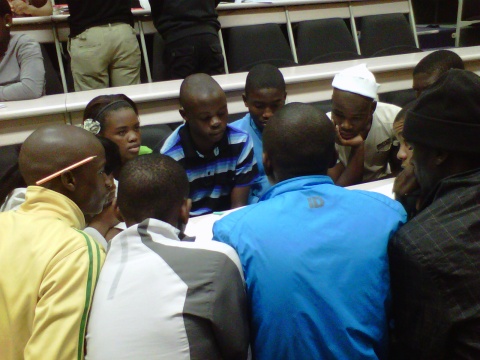
The hallway was buzzing and excitement filled the air as learners from Umlazi and Chesterville branches gathered outside Durban University of Technology’s ( DUT) passages of the library basements.
It was a mixture of old and new learners as well as old and new tutors all waiting in anticipation for the official start of Winter School. With the first half of the day dedicated to academic/tutoring activies and the latter to activities, fun and learning were definitely on the cards for the week.
This was the perfect opportunity to introduce our Reading Corner initiative, the brainchild of our Branch Assistant Cheryl Nzama. Having collected books from friends as well as a generous loan by the Umlazi AA Library ( where IY Umlazi is based ) we had a large box of books to spread amongst all learners from both branches. The aim of our book corner is not only to get learners interested in reading but also to enhance their English reading and writing skills.

Tuesday saw the arrival of the Answer Series books which IY learners over the years have used during Homework and Saturday Sessions as well as for preparation for exams. All this is possible through the kind sponsorship of The Answer , who provide these study guides for all our learners across the grades.
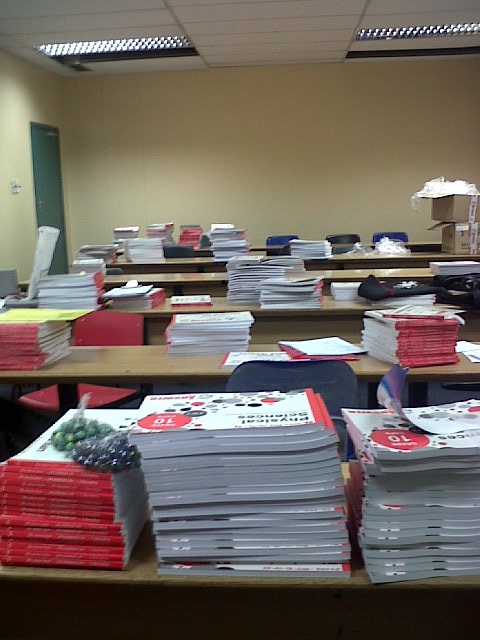
A lot of Grade 11 IY learners count Wednesday as their favourite day week 1. This is because Durban University of Technology‘s Chemistry lab ( through the assistance of senior Lecturer and Lab Assistant Mr Roy Nursagh donated half of the morning ( and some of their staff members ) towards doing various Chemistry practicals with learners – a great fete as most learners are in schools who are not equipped with Chemistry labs and only depend on their textbooks to study. Learners had the chance to do four different experiments as well as watch a presentation by Mr Roy for two other experiments.
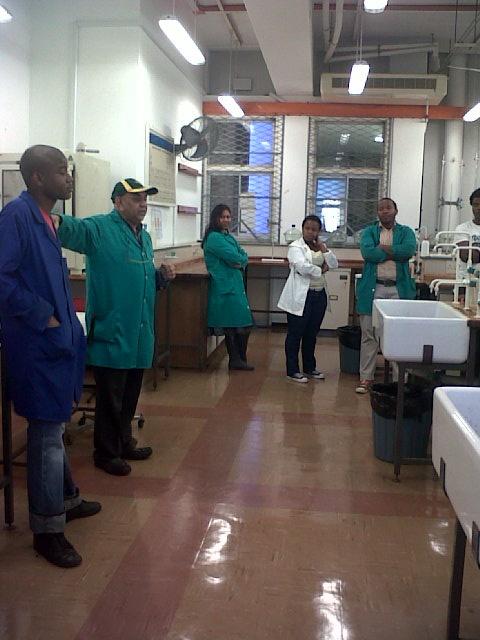
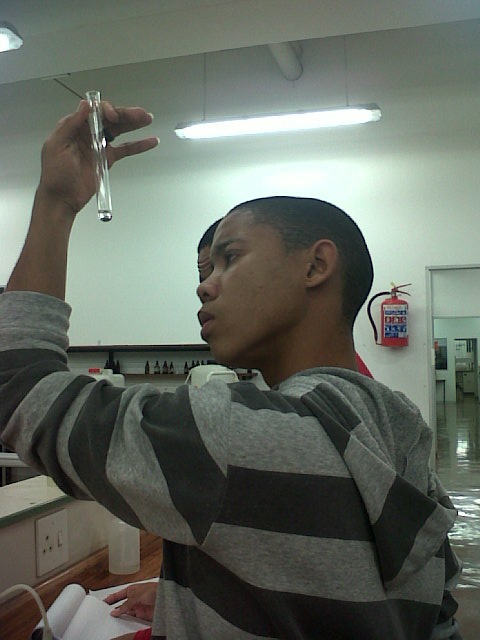
The two branches went their separate ways on Thursday for Operation Clean Up, an initiative aimed at encouraging environmental awareness and offering the learners an opportunity to back to their environment . Early in the morning Chesterville learners met up at the Vuyani Nkosi Memorial Centre where IY Chesterville is based and cleaned up the Chesterville Hospice, the main road ( Mahlathi Road ) as well as the St Anthony’s Church’s Mission which houses old aged as well as abused women and children.
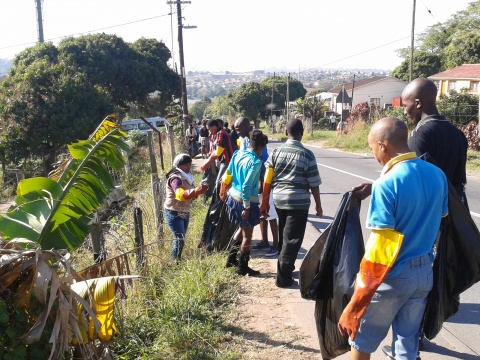
Through the assistance of Chesterville’s Area Based Management ( ABM ), Durban Solid Waste ( DSW ) donated plastics, gloves as well as an Environmental Bus and guest speaker for the event was Mr Njeba while Ethekwini Municipality’s Parks, Recreation and Culture donated tools used to clean up the yard. Both companies were also kind enough to sponsor 2 trucks and 4 municipal workers that picked up the litter collected by learners as well as the rubble from the mission.
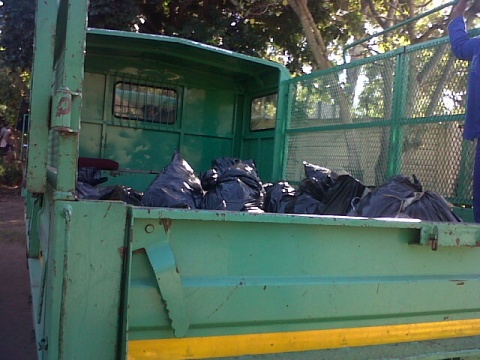
Friday, learners were combined and then separated into 4 groups : Yellow, Green, Blue and Red which were The Peacemakers, Ingqungqulu, Blue Bullz and Umlilo respectively.
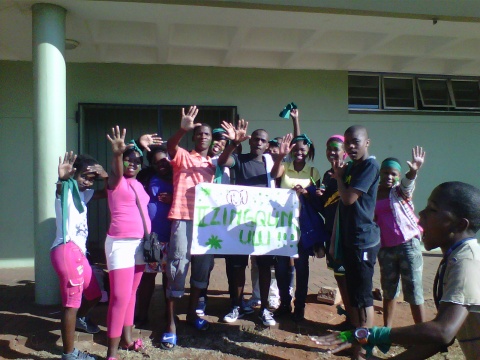
This was for our set to be annual event : Sports Day, an idea brought about by our Umlazi Branch Coordinator S’bonelo Cele.
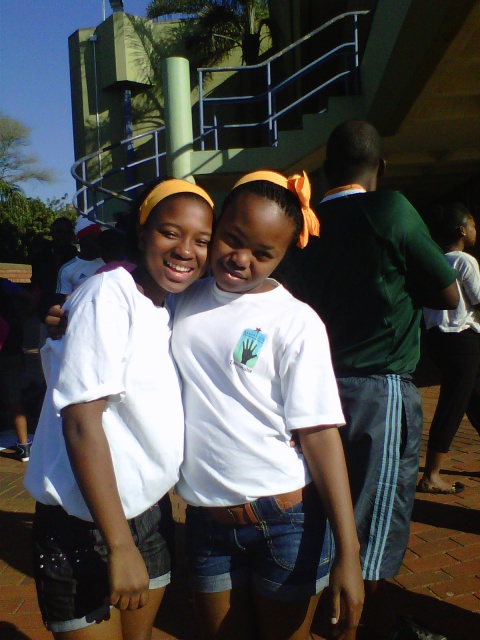
Various games such as Soccer, Netball as well as 100m, 400m and 400m Relay races and indigenous games such as Hopscotch, Amagende, Sprite and uShumpu were played and saw The Peacemakers ( Yellow ) walk away as the official winners of the event having collected the most points. ABI were the proud sponsors of this event which they also dubbed their CSI Day. Read more about the day here.
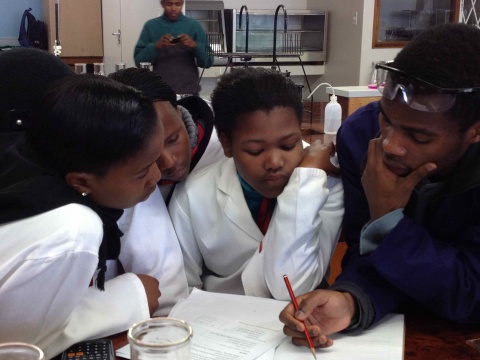
Winter school snuck up on us this year, and not in an unassuming king of way, kind of when a loud bang goes off next to you when you least expecting it kind of way Yes… just like that!
160 learners, 40 tutors, 3 busses and loads of enthusiasm, excitement and passion charged their way down the N2 to UCT Middle Campus for 10 days of learning, discovering and fun.
It’s hard to believe what we work so hard to plan for months before all ends seemingly faster than when it began! And with SO many amazing workshops, challenging tutoring times and passion from all the volunteers and learners it’s hard to give an overview of what happened this year, but I’ll try!
– Grade 11 and 12 chemistry workshops in the UCT Chemistry Labs – facilitated by Thobela Bixa, check out his incredible achievement here

– Tutoring for all the grades working through past exam papers and Answer Series books. With over 40 volunteers we achieved a ratio today of 1:4 learners per tutor! Talk about an intense time!
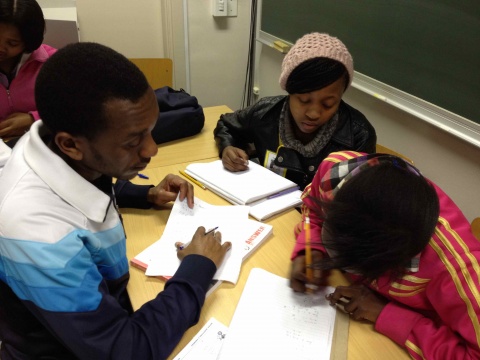
– PSH (Peers in Sexual Health) ran self-awareness workshops, while Sunstep got involved making alarms and facilitating other experiments with physics students.
– Rose, a volunteer from Stanford is working this week on a photography workshop, while other students got involved in deep debate.
– Andreas and his team from ERM, and Matthew from Cape Leopard Trust made sure the students got to grips with our environment, learning about how to make their immediate environment more sustainable, going for walks in Tokai forest finding a few wild animals along the way..
– Capitec ran some financial literacy training workshops, have a read about how they went here
– Nadia ran a very creative workshop where learners molded their own pots from clay (a little messy, a LOT of fun)
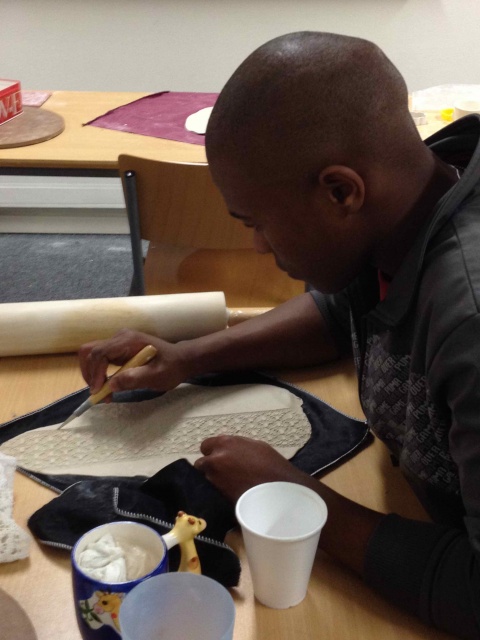
– Nkuli and the guys from Live Magazine were back this year for some photo shoot action, as well as creating content for their YouTube channel

– South African Astronomical Observatory ran workshops about what’s happening in our solar system, while the week ended off with Joy from UCT Wellness Centre putting our students through their dramatic paces presenting various health issues
Not to forget while this is all happening the Grade 11 & 12 students all ran through Operation Fikelela, a computer literacy program, while tutors set projects, homework and feedback sessions for all the grades.
Tuesday (26 June) in the first week also marked the one-year anniversary of the passing of Mphumzi Klaas, our friend, our confidant and a huge part of the Makhaza branch. We began the very emotional day with a very moving memorial service with a few people speaking, a video being show and most poignantly the choir singing moving the room to fresh tears as if one year ago was yesterday. And while the Ikamvanites once again balance grieving and all the madness that winter school brings, they did this instead of with incredible sadness and heavy hearts, but with a spirit of tenacity and perseverance they threw themselves into tutoring and workshops, with a renewed commitment to making this the best winter school possible, to show that through adversity and sadness, good can come, that people when united can make the impossible happen.
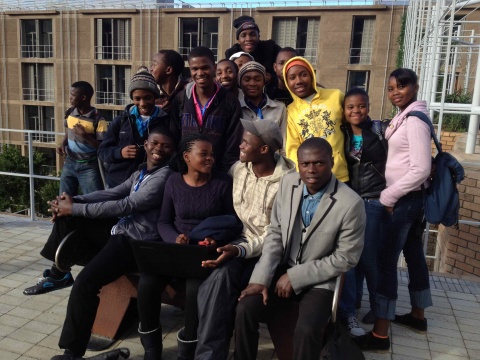
WOW! With so much happening, the biggest winter school IY has ever had finished with bang, and almost as fast as it arrived it was all over, classrooms packed up and cleaned, busses full to bursting on a day with some of the biggest downpour Cape Town has seen this winter, I can only begin to think of all the fun and excitement we can expect next year! Only after a loooooooooooong rest though…
A huge Huge HUUUUUGE thanks to ALL the workshop facilitators, tutors and learners – Your passion, commitment, excitement and leadership shown over these two weeks make this one of the best winter schools ever! Also to Lolita, Deidre and all that UCT for availing the space to us, BIG UP!!!
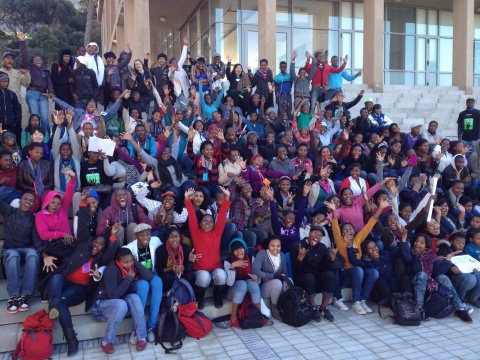
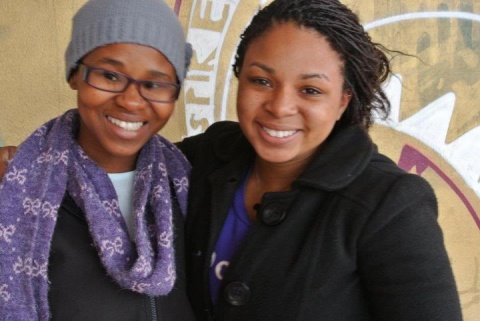
Every once in a while someone comes along into your life that forces you to examine your own, examine the way you relate to other people, the way you pay it forward, the way you appreciate every little thing that comes your way. Unathi is one of those people. She started as a volunteer in 2009 at the Makhaza branch and very quickly integrated herself into every little inch of everything we do, a walking embodiment of all the values we as Ikamvanites hold in our hearts and try live by every day.
So quickly did she become part of the branch and as the head of two programs, we never thought of the possibility of ever losing her to the corportate world!

Unathi and Torie
“My name is Unathi Smile, joined Ikamva Youth in 2009 as a volunteer. The main subjects I tutored were Maths, Accounting, Business Economics and Economics. I started tutoring the younger grades especially the grade 10s. I matriculated in 2006 from Harry Gwala Secondary; in 2010 I graduated in ND: Management at the Cape Peninsula University of Technology. In 2012 I graduated in Btech: Quality from the same institution. In between studying, I maintained volunteering at Ikamva and I tutored the older grades. In 2011 I tutored intensely which resulted in me becoming a coach in a computer program called Khan Academy. This did not end there I became the director of the Khan Academy program.
Capitec Bank hosted Competency Tests during the March school holidays to help IkamvaYouth develop a benchmark for which we can compare results, which I also took part in. In a matter of 3 weeks I received a phone call from the bank for an interview. Right after the interview I waited for full two weeks and heard the news I have wanted to hear, I had passed the interview!
The experience I have gained from working with the kids and the knowledge I have gained from studying for 5 years made me the leader I am today.”
So today is Unathi’s first day at her new job! And while we are very sad at Makhaza not to have her around everyday, this is the whole reason why we do what we do – people paying it forward in their lives, pulling themselves and each other out of povery. Unathi we know you will be a HUGE success at Capitec, and they will love you as much as we do!
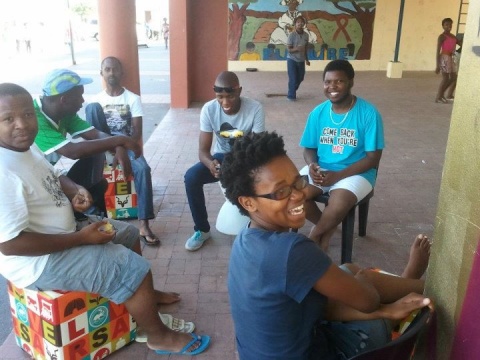
Chilling with the boys
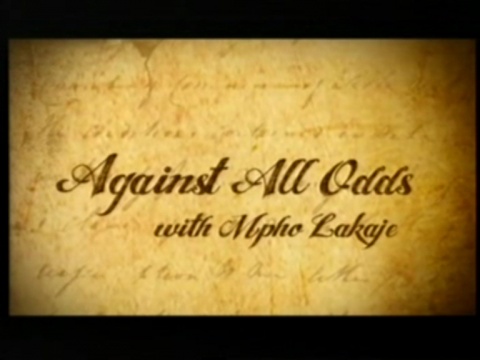
Click the image to watch:

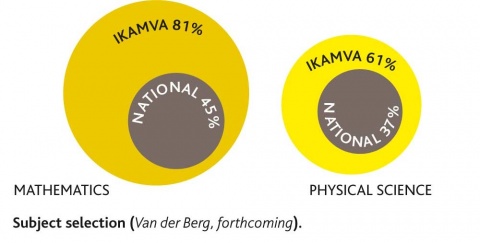
IkamvaYouth is pleased and proud to announce the publication of Against the odds: An evaluation of the IkamvaYouth programme, by a team of economists at the University of Stellenbosch. Servaas van der Berg and his team conducted an in-depth evaluation of IkamvaYouth, by administering questionnaires and interviewing 828 ikamvanites (past and present).
The full report is available here for download, and contains a wealth of information, results, analysis, quotes from ikamvanites and recommendations for improvements and scale.
Some of the findings have validated the results we’ve reported via our own tracking (see below). However, there were also some new and interesting findings, including:
- Insight into ikamvanites’ wealth and living standards
- Only 38% of ikamvanites live with their parents; 45% sometimes go to bed hungry; only 31% have their own desk or table at home and 65% have their own bed.
- 22% of mothers have matric and 11% have some post schooling
- 15% of fathers have matric and 9% have some post schooling; 32% of fathers’ education levels are unknown
- Matric results as compared with those of our feeder schools
- Detail regarding learners’ choosing Maths and Science and their performance in these most-challenging subjects
- “An overwhelming majority (81%) of Ikamva students in 2011 elected to do Mathematics, versus less than half of all candidates nationally. For Physical Science too, far more Ikamvanites chose this difficult option. Reponses to the survey indicate that similarly high proportion of former Ikamva students had elected these two subjects: 78% wrote Mathematics and 54% Physical Science.”
- “The difficulty of these subjects can be gauged from the fact that nationally, the pass rate (at 30%) is 46% and 53% for these two subjects respectively, much lower than for other electives such as Geography (70%) or History (76%), despite the fact that the candidates in these first two subjects are a far more select group in terms of academic ability. This ambitious subject choice is even more exceptional when compared to learners from similar (mainly township) schools. Ikamva’s encouragement of learners to take these more difficult subjects necessarily affects the relative pass rates and the subject performance of Ikamva learners negatively, thus the need to carefully consider this when evaluating Ikamva learners’ results.”
- “61% of all Ikamva matric candidates wrote and passed Mathematics, as against only 21% for all South African matric candidates.3 The proportion of all Ikamva matric candidates who achieved 40% or more was 28% versus 14% for all South African candidates. Compared to similar communities the Ikamva performance in this regard would even be more impressive than this.”
- ” What Ikamva thus successfully manages to do is to encourage learners from across the ability spectrum to raise the bar, by entering for subjects which the typical student from weak schools would usually avoid, and then to achieve success which is at least comparable to that achieved by candidates that often are more selected in terms of ability and from higher socio-economic groups. This is a truly impressive achievement.”
- The good results are consistent: “average results differ little between branches”
- The programme is very highly regarded by our learners and ex-learners (they do tell us these things, but it means a great deal more when told to independent evaluators)
- “The evaluation team is confident that Ikamva’s short term impact is considerable. This lies not only in the improved matric performance, but even before that in helping to create an environment where children from often very disadvantaged circumstances feel a sense of belonging and that someone cares about their needs and ambitions. That alone is a very valuable contribution. The extent of this contribution cannot be measured, but is visible in the fact that Ikamva was so highly praised by all who participates in it, or have done so in the past. As an evaluation team we have not seen such universally high praise of an organisation before.”
- Insight into the “success factors” behind the IY model
- “The remarkably successful personal relationships that Ikamva has developed with participants, based on extremely sensitive interaction with learners, yet without undermining basic discipline: “Kickouts” still occur and learners know that they can only remain part of the “family” if they play their part.”
- The tutors: “They are largely volunteers and mostly young. The fact that many of them are former Ikamvanites say something about the glue that holds Ikamva together: A positive social context in an environment where many face harsh circumstances at home, in the labour market, schools, universities, and wider society. The link with Ikamva means much to them, and also provides some continuity in their lives. Also, they act as role models to learners, thus further strengthening the desire of learners to undertake tertiary studies. Their relative youth also means that communication with learners is easier, in contrast to what learners experience at school. The team found no evidence that the tutors were particularly well trained or that they were always much better teachers than those in schools; the commitment, positive interaction and additional time were apparently most important in the success of students, not the better teaching.”
- “The fact that Ikamva operates in metropolitan environments where there are universities close by is an important factor in its success. Without a strong volunteer base, the tutors would not have been available, and it would have been more difficult to build the passion for tertiary studies that drives many Ikamvanites.”
- “The most important factors in Ikamva’s success, however, appear to be its commendable organisation, good planning and the enthusiasm of those at the head of the organisation. This enthusiasm is contagious.”
- Matric results
- “85% of Ikamva candidates passed, against the 70% nationally, or put differently, that Ikamva’s failure rate of 15% was half of the national average. But the full extent of Ikamva’s performance success is not yet captured in simple pass or fail rates: What is quite impressive is Ikamva’s performance in terms of getting learners access to universities: 36% of Ikamva candidates, versus 24% nationally, obtained a so-called “Bachelor’s degree endorsement”, i.e. a pass that is considered by the Department of Basic Education as good enough for degree studies. This is what used to be referred to in the past as “university exemption”. Data on a race basis is not yet available for 2011, but to put the Ikamva performance in terms of potential university entry in perspective, it is worth considering that the proportion of black students who obtained such exemptions in 2007, the last year for which race data could be obtained, was only around 11%. Altogether 72% of Ikamva candidates passed with either Bachelor’s or a Diploma endorsement, i.e. could potentially attend a university for degree or diploma studies (some universities have stricter entry criteria, though), whilst this proportion is only 53% amongst matric candidates nationally.”
- Placement into post-school opportunities
- More than half of respondents who had matriculated whilst participating in Ikamva after matriculating (58% of the 119 such respondents in the survey) indicated that they had gone onto university studies, and another 14% that they had continued onto “college” (here interpreted fairly broadly as other post-school studies). This thus left only 28% who had not gone on to further studies.
Key recommendations which we’re currently considering carefully include:
- Find ways to support learners as they adjust to life at tertiary
- “Ikamva could, and should, find ways of assisting students to make the transition to university, both by assistance with the initial exposure to academic English that many respondents to the qualitative interviews found daunting, and by helping them to find support structures to reduce the anomy that they experience when starting at university. Ikamva would have to decide how much of this it wants to engage in itself (which is not its core activity), and how much can be done by assisting Ikamvanites to link to other institutions (e.g. NGOs and university structures) that could assist.”
- Provide more support to build proficiency in Academic English
- Scale cautiously:
-
“Given how important Ikamva’s leadership is in its success, one may well argue that it would be extremely difficult to scale up the activities, particularly across many more centres. The evaluation team has indeed expressed its reservations about that in previous interaction with Ikamva: It is easy for leadership to under-estimate the importance of its own role. A dilution of this leadership across a much bigger organisation may lead to the programme losing some its attractiveness to students. On the other hand, analysis shows little difference in performance between branches. This could be interpreted as that the success lies in the model, and not in the particular leadership at branch level. This would be consistent with a view that expansion could be attempted as long as good branch leadership can be found. A cautious approach may be to consider expansion only when there are good support structures and where good branch managers are available, but not to be over-ambitious. The strong central leadership capacity that Ikamva possesses for planning and organisation is an asset that could be built on and that may offer a solid foundation for expansion, but it should not be endangered by too rapid expansion. Also, expansion should retain the essentials of the existing model, which importantly includes proximity to a university environment, preferably in a metropolitan area. This limits scalability, but such a conservative stance may be appropriate.”
IkamvaYouth is greatly appreciative to the Evaluation team (Nic Spaull, Ronelle Burger, Cobus Burger, Chris van Wyk, Servaas van der Berg, Robert Dzivakwi and the fieldworkers), ikamvanite Phillip Mcelu for tracking down 95% of all ikamvanites (!), DGMT for making this possible, and to all the ikamvanites who participated in the survey and interviews.

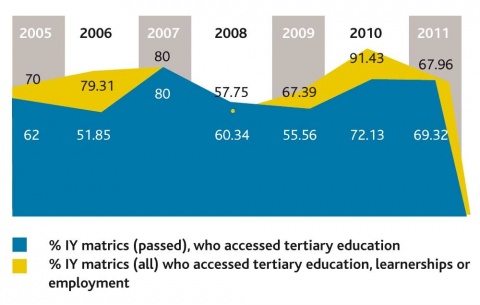
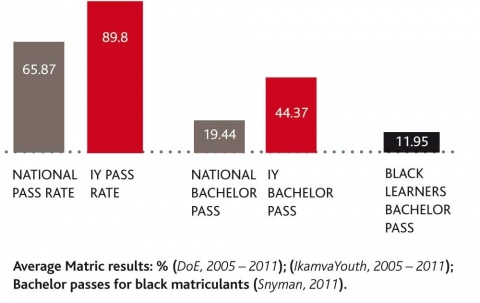
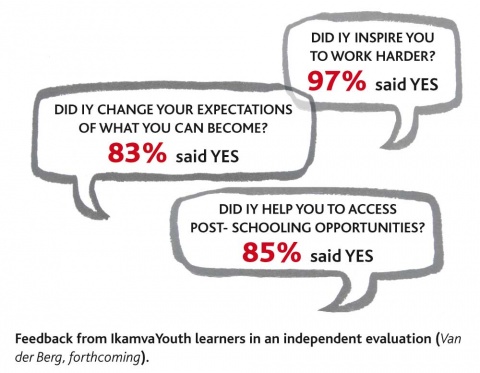

One of Makhaza’s tutors was lucky enough to be involved with Dance4Life and RedZebra Foundation which uses creative facilitation techniques, dialogue tools, bottom up processes as well as music and rhythm to deliver powerful experiences for the young people. The approach is youth friendly and centered around the notion that
Dance for life is a dynamic international initiative that involves young people; it encourages them to use their voices in stopping the further spread of HIV/AIDS and breaking down the stigma and taboos that surround the pandemic. Its approach covers all aspects of popular youth culture: media, language, icons music and especially dance. Dance is a universal language and through Dance4life young people dance with a cause. During the Schools4Life project (visiting schools and run workshops), which is the heart of the concept, they acquire the knowledge and life skills they need to protect themselves, while motivated to inform their peers and take action to improve young people reproduction health and rights.
By involving youth, it’s possible to change not only their behavior but also to mobilize them to create social change in their communities so that others change their behavior and perceptions as well. Dance4Life strives to empower young people to unleash their leadership potential, including young people living with HIV.
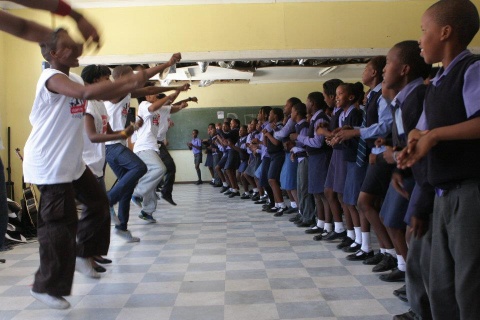
Ayanda Sawulisi, a past IkamvaYouth learner at the Makhaza branch, now a committed tutor participated for the week’s training and has this to say, ‘Well I got involve in the Dance4life project via Ikamva Youth. I got interested in the program because I love to work with young people and being the person that I am who is involved in the entertainment industry, I believe that I can use my skills and elevate dance4life project to new heights.
I also joined because Dance4life’s tool of getting the message across is very unique and inclusive ways though dance, music, spoken word etc which are my areas of interest. The training was great; it was very informative in terms of leadership skills and how to run workshops. It was full of energy, skills exchanging and creativity. Most of all I enjoyed to learn the dance which was the core element of the program and I was blessed to be amongst individuals who are very talented and who are in the virtue of becoming young leaders. The dance will help me in a way that I will be able to teach others but most of all to teach them the message behind the dance and it also help in terms of fitness/health because you sweat very much!’
Big up to Peter Schaupp and RedZebra Foundation for the opportunity!
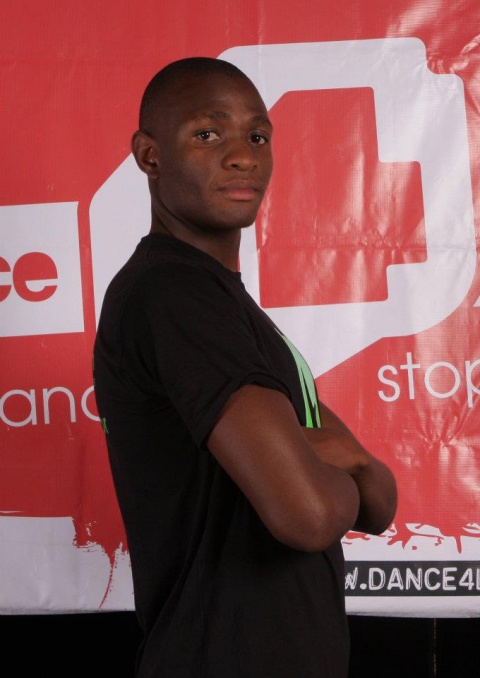


























 Lloyd Lungu
Lloyd Lungu